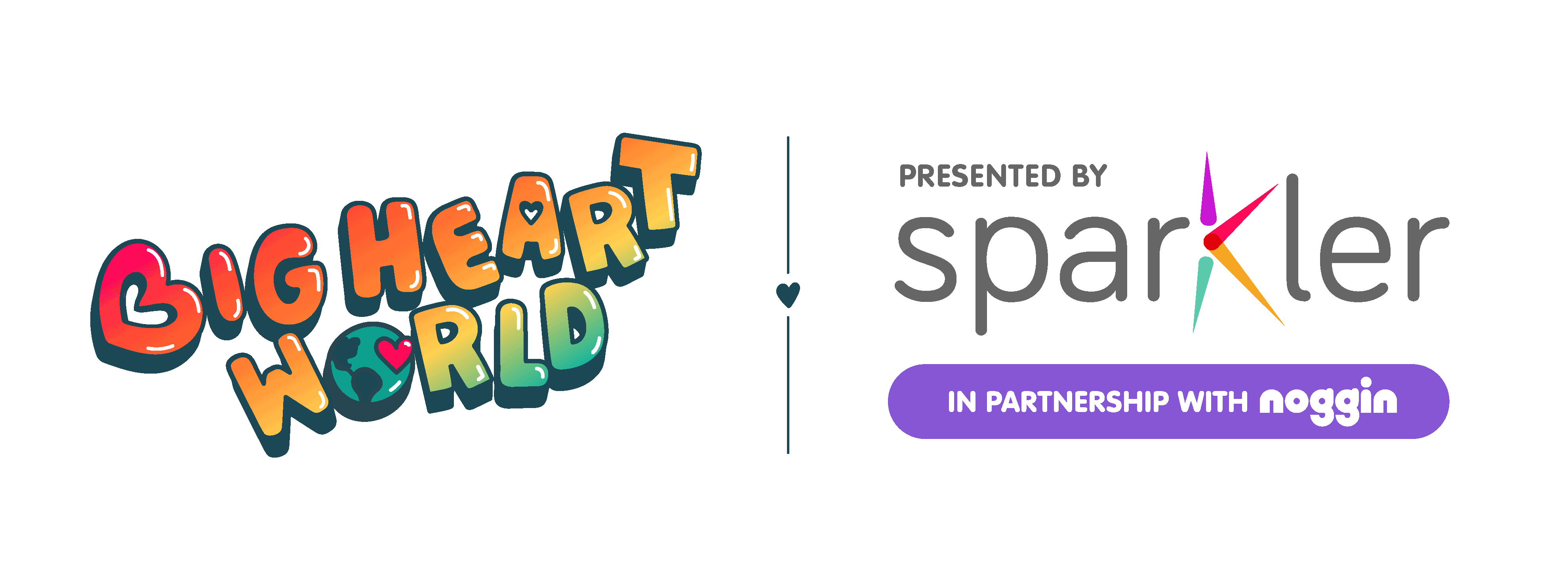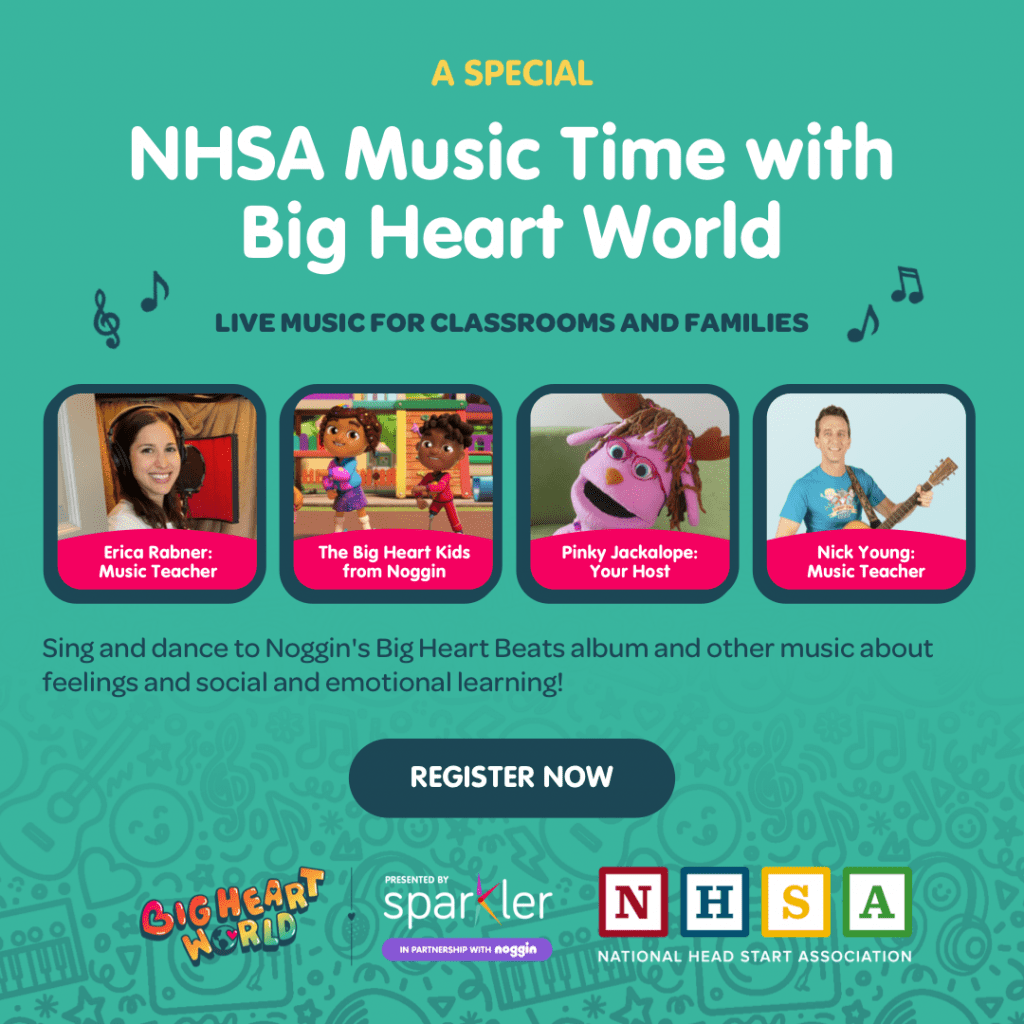Originally published by The 74.
By Julia Levy
COVID-19 is forcing young children to cope with stress, loss, and anxiety about everything from in-person school to pandemic-friendly playground practices — and most parents say they’re worried about their children’s social and emotional health.
While it’s too soon to know the long-term effects of the pandemic on children’s academic and social development, experts in education, health, and child development say there are practical steps families can take to support children and help them cope with stress, uncertainty, and transition.
Janelle Bradshaw, CEO of Public Prep; Dr. Dana Crawford, a pediatric clinical psychologist and scholar in residence at Columbia Zuckerman Mind Brain Behavior Institute; and Dr. Ryan Padrez, a pediatrician at Stanford and Medical Director at The Primary School answered parents’ questions about social and emotional wellness as part of the launch of the Big Heart World initiative, a partnership between Sparkler Learning and Noggin focused on helping parents, caregivers, and educators boost children’s social and emotional skills and build resilience. Bekah McNeel, an education reporter at The 74, moderated the discussion.
“All of these things … are really weighing on parents’ minds,” McNeel said.
The Big Heart World initiative aims to help parents and educators address the pressing social and emotional needs that America’s young children have right now during COVID-19 and to provide action-oriented tools and resources that help grown-ups support children’s healthy social and emotional development. In collaboration with non-profit partners — from the National Head Start Association to the Campaign for Grade-Level Reading, Big Heart World is rolling out monthly content focused on the core areas of social and emotional learning: awareness of self; awareness of others; and relationships with others.
How Parents Can Foster Social and Emotional Growth Now
Bradshaw, Crawford, and Padrez said parents can foster social and emotional wellness by creating routines, having intentional conversations about topics like kindness, and using books to focus children’s attention on feelings, friendship, and other social themes.
“I think many of our families have learned the importance of setting routines,” Dr. Padrez said.
Bradshaw said her schools have added an extra 30 minutes each day for teachers and students to focus on students’ social and emotional wellness. They discuss: “Are you feeling energized and tired, anxious, excited? And is that a feeling that you want to keep or feeling that you want to change?”
Talking Openly About The “Different Pandemics”
Bradshaw, Crawford, and Padrez said the pandemic has affected communities differently, and that families have followed different rules.
Bradshaw saw that students and staff in her school community experienced different pandemics: Some had sick family members. Others had family members who were transit workers, security guards, or delivery people, who had to work through lockdowns. Others had reliable Internet and backyards to play in.
She said addressing these disparities with young children needs to be an “ongoing conversation.”
Crawford said it’s important for parents and caregivers to talk about their family’s beliefs and set clear rules.
“I think the issue becomes when families aren’t clear,” she said. “We all have cabin fever, and sometimes when different mandates change, folks interpret that as they can get more relaxed. I think when that happens, children get more confused. If adults aren’t clear, kids aren’t clear.”
Don’t Forget Parents’ Wellness
All of the panelists said parents and caregivers need to take care of themselves in order to support their children’s emotional wellness.
Bradshaw said she thinks of parenting self-care like the airplane safety rule of putting on your own oxygen mask before you help others.
“It’s a really important concept for families whose home and work lives have been merged as everyone’s working from home to really remember: how are you feeling as an adult? And how are you managing your emotions and trying not to…transfer that to your children who are feeling their own levels of stress?” she said.
Dr. Padrez said his medical training taught him the importance of self-care
“I think it comes from probably all the training and residency and through the long hours you’re working in recognizing that you’ve got to take care of yourself if you’re going to survive,” he said. “I feel like this year has been the year where everyone is put through that test of long hours, and really finding those new activities for self care, I think is really important.”
Preparing Families to Go Back to “Normal”
Before a big transition like the move back to in-person school, Crawford advised parents and children to “visualize” new routines and even rehearse the day in a playful way to alleviate anxiety.
“We did that when my two year old was about to start school,” she said. “We literally walked outside, we walked back inside, pretended…my husband was the teacher.”
She said older children can benefit from this sort of pretending, too.
Bradshaw has just reopened her schools this spring and her own elementary school-aged daughter has just returned to in-person school.
“Children learned very quickly how to wear their masks and follow all of the social distancing guidelines, including washing their hands more frequently,” she said. “The reason why they were so amenable is because they were so excited to be back in their community.”
She advised parents to talk to their child’s teacher and to their children to help them prepare. This might mean helping children learn to elbow bump rather than hug, or it might mean working as a family on being more flexible to prepare for the unexpected.
Padrez said he walks through the science and logic of in-person schools with his patients’ parents to reassure them that their children will be safe in school.
“There are some families out there that are still afraid to send their child back to school and so kids are going to pick up on that,” he said. “Be aware of that sort of emotion. Be okay to acknowledge that with your child. It’s a good trust-building experience, but to also have confidence as a parent that this is a safe place to go back to school for your child.
Building a Generation of Resilient Kids
Dr. Padrez said there’s a lot of concern about children’s social and emotional health during the pandemic, but that the hard circumstances of the last year might actually foster a “resilient generation of kids.”
“I like to remind our families that parents are always their children’s first teacher,” he said. “Social-emotional growth happens at home naturally. We just happened to get it in a bigger dose this last year.”
Julia Levy is executive director of Sparkler Learning.

